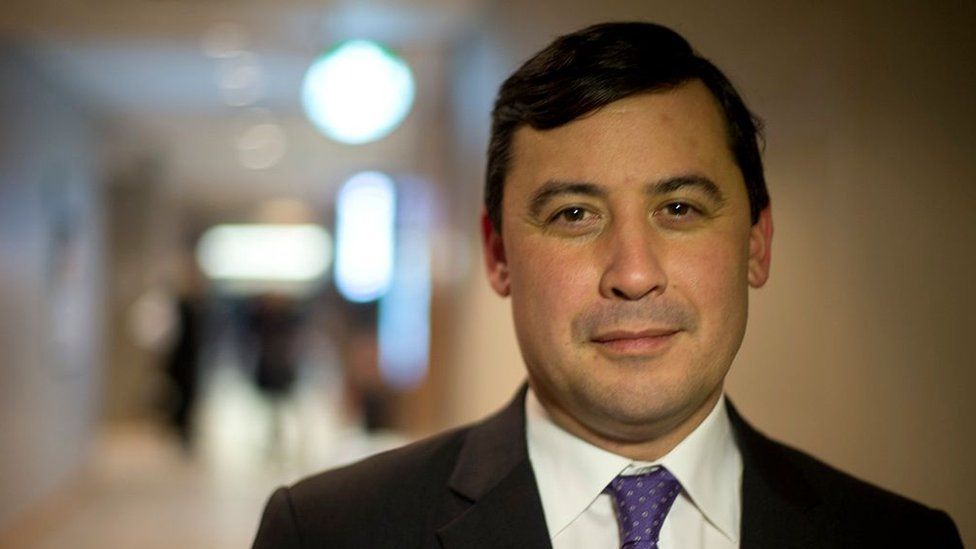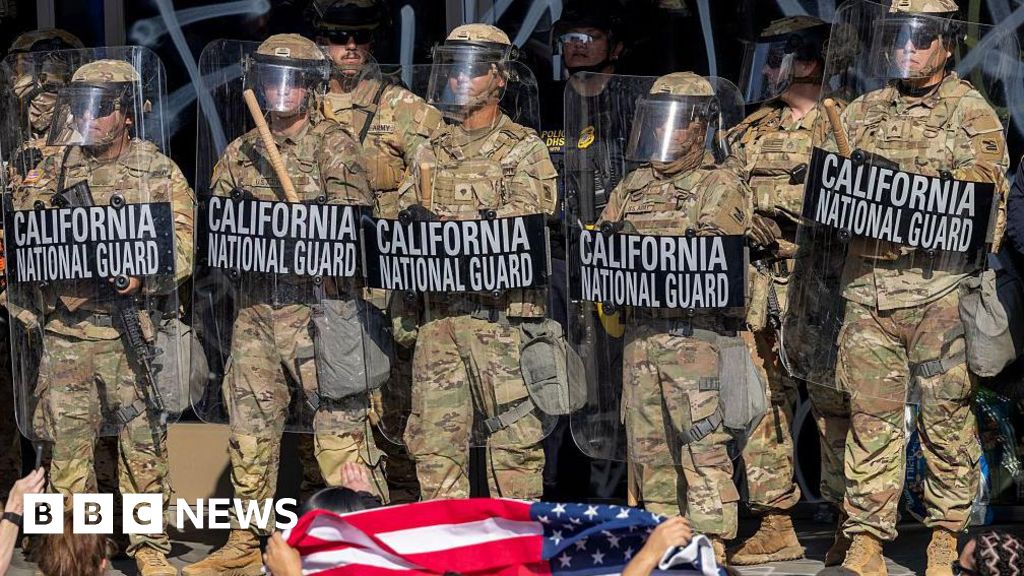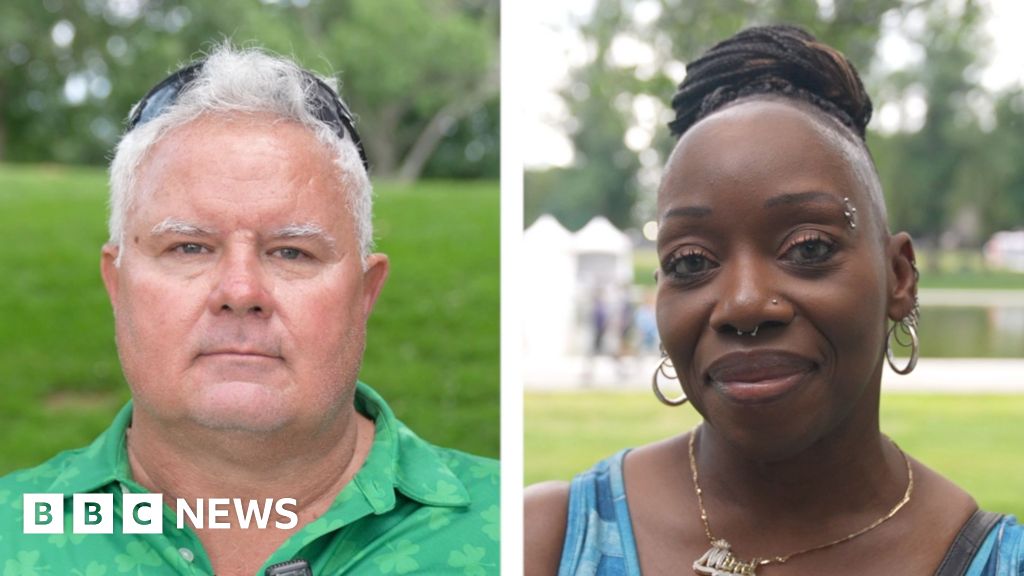ARTICLE AD BOX
 Image source, Toronto Star via Getty Image
Image source, Toronto Star via Getty Image
Canadian member of parliament Michael Chong learned through media reports that China allegedly targeted him
By Nadine Yousif
BBC News, Toronto
The allegations kept mounting in Canada: Election-meddling by China, an Indian-backed assassination on home soil, and a campaign to harass Iranian dissidents. Is Canada especially vulnerable to foreign interference?
Michael Chong said it did not take long for him to become a target of Beijing.
In testimony before US lawmakers on Capitol Hill last year, the Canadian Conservative politician described how an alleged intimidation campaign against him was born after he spoke out against China's human rights record in parliament.
He said that a Chinese official in Canada began gathering details about his relatives living in Hong Kong shortly after, and that a smear campaign against him was launched on China's most-popular social media platform, WeChat.
"My experience is but one case of Beijing's interference in Canada," he said. "Many, many other cases go unreported and unnoticed, and the victims suffer in silence."
The alleged targeting of Mr Chong, which first became public when intelligence reports were leaked to Canadian media, unleashed a fierce debate in the country around its vulnerability to foreign interference and the safety of its citizens.
On Monday, he and others will begin testifying before a public inquiry that will look into Beijing's meddling in Canada, especially its alleged efforts to sway the country's last two federal elections by backing certain candidates.
China has denied any interference and the allegations have soured relations between Beijing and Ottawa.
While the inquiry will focus on claims of election interference by China, Russia, India "and other foreign actors", experts say the problem of foreign meddling in Canada is much more complex and widespread.
Solving it, they say, demands a restructuring of the political and social DNA of the country, which has long-failed to prioritise matters of national security.
"Generally speaking, we have been neglecting national security, intelligence, law enforcement, defence, and so on," Thomas Juneau, a political analyst and professor at the University of Ottawa, told the BBC.
While it is tough to determine whether Canada is uniquely vulnerable compared to its allies, Mr Juneau argued that other countries have done a far better job in addressing the issue.
An outdated system that is slow to adapt
One glaring problem, Mr Juneau said, is the out-of-date act governing the Canadian Security Intelligence Service (csis). It is almost 40 years old, designed with the Cold War in mind, "when the fax machine was the new thing", he said.
Because of this, he said, the nation's primary intelligence agency has been limited in its operations, focused on sharing information solely with the federal government.
This means possible targets are often left in the dark.
That was spotlighted by Mr Chong's story. He only discovered that he had been an alleged target of Beijing through the media, despite csis having monitored threats against him for at least two years.
Canada has since launched public consultations into how the law governing csis can be amended to better inform and protect individuals who could be a target.
The source of Canada's security complacency, argued Richard Fadden, a former csis director and national security advisor to two prime ministers, is that Canada has lived in relative safety, largely protected from foreign threats by its geography: the US to the south, and surrounded by three oceans.
"I mean, nobody is going to invade Canada," he said.
Canada's allies - like the US and Australia - have been quicker to adopt certain tools to help catch bad actors, such as establishing a registry of foreign agents and criminalising acts that can be classified as interference.
In December, Australia convicted a Vietnamese refugee who was found to be working for the Chinese Communist Party, thanks to a law it passed in 2018 that made industrial espionage for a foreign power a crime.
Such laws are not only important for charging and convicting culprits, but can also help educate the public and deter other nations from interfering, said Wesley Wark, a leading Canadian historian with expertise in national security.
Diaspora groups are especially vulnerable
Mr Wark said the country's diverse population has also made it a convenient target for foreign states.
"We are a multicultural society and we have gone to great lengths over decades to preserve and protect that," he said.
But diaspora groups, especially those vocally opposed to the government of their country of origin, have naturally become a target.
British Columbia lawyer Ram Joubin has had a first-hand look at the threats facing dissidents in Canada, particularly those from Iran.
While investigating people with ties to the Iranian regime who call Canada home, Mr Joubin said he has heard from Iranian-Canadians who say they have been followed and harassed by regime agents in their own communities.
"We've had death threats, knock-on-the-door type of death threats," he said. "And then we have a lot of people with their families in Iran being threatened because they engaged in some sort of activism."
Csis has previously said it is aware of alleged intimidation attempts. The Iranian government has not commented publicly on these allegations.
In Mr Joubin's experience, reporting these incidents to officials like the Royal Canadian Mounted Police (RCMP) has been a challenge, especially when additional work is needed to establish a credible criminal or civil case.
Both the RCMP and csis were criticised after the murder of Hardeep Singh Nijjar, a Sikh separatist that was killed in June in British Columbia, which Canada has alleged was done with the involvement of Indian government agents - something India denies.
Prior to his death, Mr Nijjar had said that police were aware he was a target of an assassination plot.
Questions were raised about whether something could have been done to stop his killing after the FBI said it was able to foil a similar assassination plot in November against another Sikh separatist leader in New York City.
Image source, Bloomberg via Getty Images
Image caption,Richard Fadden says Canada is only now coming to terms with its vulnerability to foreign meddling
Mr Fadden said the events of 2023 represented a seismic shift in Canada's psyche, forcing the country to finally confront the issue of foreign interference.
"Despite a deep reluctance on the part of the government to hold a foreign inquiry, they were compelled to do it," Mr Fadden said. "I think if there hadn't been that shift, we wouldn't have an inquiry."
The inquiry, led by Quebec appellate judge Marie-Josée Hogue, will be conducted in two phases, ending with a final report in December that will include recommendations on what Canada can do to deter future interference.
Some have expressed concern about the inquiry's short mandate, and whether its recommendations will be wide-ranging enough and implemented as Canada inches closer to an election year that could see a change in government.
But in the meantime, Mr Fadden and others said they believe urgent action is needed.
"There are two big issues: there's interference in our elections," Mr Fadden said. "But there's also interfering and scaring members of the diaspora in this country, which is a very serious matter."
"We have a responsibility to protect people who are in Canada, and I don't think we're doing as good of a job on this as we could be."

 1 year ago
35
1 year ago
35








 English (US) ·
English (US) ·